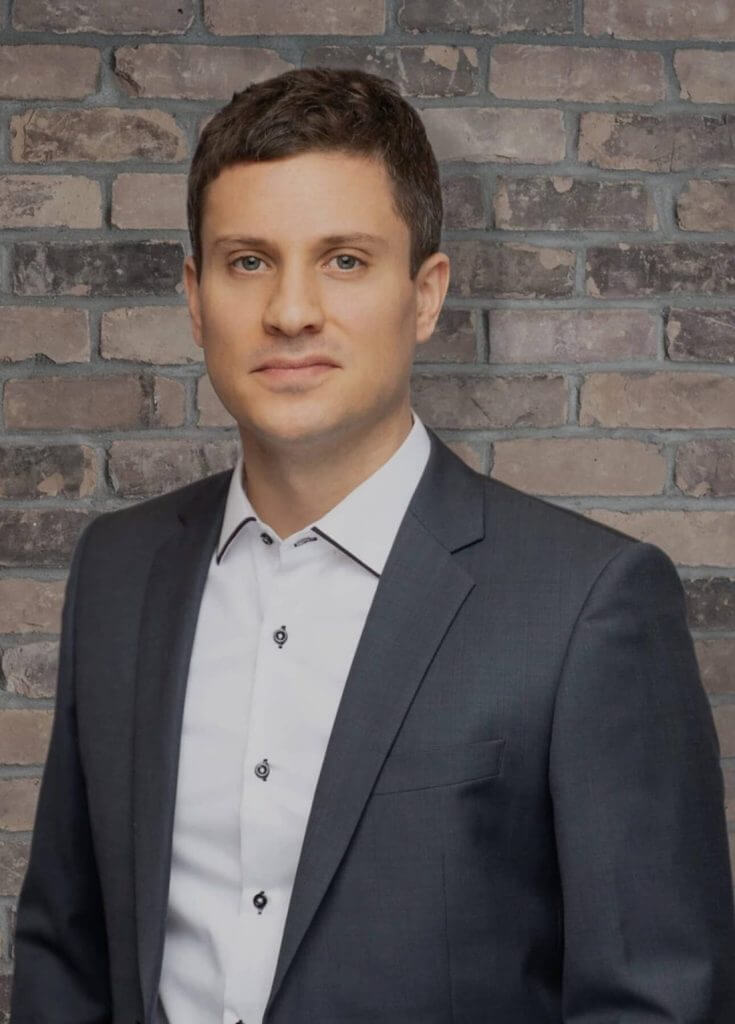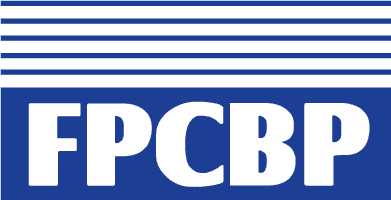Sexual Assault Lawyer in Toronto
Sexual Assault Lawyer in Toronto
Arrests don’t follow office hours. Police interrogations rarely wait for morning. When the call comes in the middle of the night, you need a Sexual Assault Lawyer in Toronto who picks up – not voicemail, not an answering service – real legal support, immediately.
Direct Access to a Lawyer When Minutes Count
- Immediate representation: If you’ve been arrested or are facing police questioning, call us the moment your phone is returned. We act fast to protect your rights and prevent self-incrimination.
- Legal hotline answered by lawyers: Not paralegals. Not receptionists. A licensed criminal defense lawyer picks up, ready to guide your next move.
- Rapid intervention: We communicate directly with police on your behalf. That might mean pushing back against unlawful searches, influencing immediate release decisions, or arranging bail early.
24/7 Emergency Legal Support in Toronto
Your First Call Should Be to Your Lawyer – Always
Whether you’re sitting in a police cruiser, at a station, or calling after learning you’re being investigated, we stay prepared. Legal emergencies don’t clock out at 5 PM. Neither do we. Many of our clients contact us at their most vulnerable – frightened, confused, unsure who to trust. The moment that call comes in, we begin defending your future. No delay, no lecture, only clear, strategic advice based on the Criminal Code of Canada and how real Toronto courtrooms work.This Is the Moment to Act
Everything that happens in the first few hours can make or break your defense. We’re not just available – we’re ready. Call us, and speak directly to a Sexual Assault Lawyer in Toronto who knows the law, understands the stakes, and acts without hesitation.Criminal Defense Expertise That Gets Results
Decades of Success Defending Sexual Assault Charges in Toronto
LDLaw brings trial-tested criminal defense strategies directly into your corner. Over years of high-stakes courtroom experience, we’ve secured acquittals, withdrawn charges, and resolved complex sexual assault cases across Toronto’s legal landscape. From historic allegations to recent accusations, we’ve handled an array of cases involving everything from unwanted touching to aggravated sexual assault. The outcome of a sexual assault allegation can hinge entirely on your legal representation. We don’t speculate – we analyze. We don’t delay – we act. And we don’t back down – we defend with precision.We Know How Toronto’s Courtrooms Operate – And Who’s Inside Them
Every courtroom has a rhythm, every Crown has tendencies, and every judge carries expectations. Our team knows the players, the process, and the pressure points. Having worked extensively in courts throughout Toronto – including Old City Hall, 361 University, and North York – we understand how to position your defense to align with the most effective legal avenues available.- We anticipate the Crown’s moves before they act.
- We tailor arguments to align with the judge’s approach to evidence and procedure.
- We navigate procedural nuances that less experienced counsel miss entirely.
Experienced Legal Counsel Changes Outcomes – That’s Just a Fact
No two cases are identical, but the presence of an experienced sexual assault lawyer consistently shifts momentum. Prosecutors test the resolve of defense teams – we show ours early, and we show it sharp. Our clients don’t get buried in the system; they get strategic options, direct advice, and an advocate who refuses to let the prosecution control the narrative. From challenging the admissibility of evidence to cross-examining key witnesses, our methods break assumptions and dismantle contrived testimonies. When stakes include your freedom, reputation, and career, experience isn’t a luxury – it’s the edge that divides conviction from exoneration.You Know Within Minutes if You’re Speaking to a Real Defender
And our clients do. From the first consultation, we establish trust through transparency, certainty, and honest legal insight that others refuse to offer. We explain what’s working, what’s not, and what comes next. You’ll never leave a meeting with us wondering where you stand or what your lawyer is doing. You’ve been accused. The clock’s ticking. Are you ready to fight back with a defense team that knows how to win in Toronto courtrooms?Sexual Assault Lawyer Toronto | Defending Your Future with Precision and Discretion
Understanding the Legal Definition Under the Criminal Code
Sexual assault in Canada is defined in Section 271 of the Criminal Code. It includes any form of unwanted sexual contact where consent is absent. The action must involve intentional touching, be of a sexual nature, and violate the sexual integrity of the individual. This encompasses a broad range of behaviours – from groping to forced intercourse – making context and interpretation highly significant in court. The courts consider three key factors to determine whether an act qualifies as sexual assault: the part of the body touched, the nature of the contact, and the circumstances surrounding the incident. Judges also assess how a reasonable observer would interpret the act. A hand on a shoulder in a crowded space may be dismissed as incidental, while a similar gesture in a private setting could be interpreted differently.Other Sexual Offences That Fall Under the Same Umbrella
- Sexual interference: Involves any sexual touching involving someone under the age of 16.
- Invitation to sexual touching: Occurs when someone invites or incites a minor to engage in sexual contact.
- Sexual exploitation: Targets situations where a person uses trust, authority, or dependency to engage a young person in sexual activity.
- Sexual harassment: While typically addressed in civil or workplace contexts, it plays a relevant role in understanding a broader pattern of alleged behaviour.
Consent: The Defining Line Between Lawful and Criminal
Consent in Ontario criminal law must be actively given, clear, and continuous. The Supreme Court of Canada in R v. Ewanchuk (1999) solidified this standard by rejecting implied consent and emphasizing an affirmative model. A person must freely agree to the sexual activity, and agreement must be present for each specific act. Situations where consent is deemed legally invalid include:- The person is under age or unconscious.
- Consent is coerced through threats or force.
- The accused abuses a position of power or authority.
- The individual changes their mind during the act and this is ignored.
Common Misconceptions About Sexual Assault
The term sexual assault often leads to confusion. Some assume it applies only to violent rape or extreme physical force. That’s not accurate under Canadian law. Even a single unwanted touch – if sexual in context – can lead to a criminal charge under Section 271. No physical injury is necessary. No weapons need to be involved. And silence, hesitation, or previous romantic history do not equate to ongoing consent. Labels like “he said, she said” fail to capture how the courts assess credibility, factual consistency, and the effect of digital evidence. Video footage, text messages, and witness testimony routinely shape outcomes. What’s your version of the event? That story must be told clearly, strategically, and with legal precision.
What Constitutes Sexual Assault in Canada?
In Canada, sexual assault cases carry significant legal weight, with Crown prosecutors often pushing for severe consequences including jail time, mandatory registration on the National Sex Offender Registry, and long-term restrictions on employment and mobility. From the moment an accusation is made, the criminal justice system moves swiftly – and not always fairly. Bail conditions are imposed, reputations are damaged, relationships collapse, and the path to restoring your name becomes steep.
The justice system in Toronto treats these allegations seriously, and so do we. A sexual assault charge is not simply a legal problem – it’s a personal crisis. False accusations, misinterpreted encounters, or incomplete investigations occur more often than the public realizes. That’s why choosing a skilled sexual assault lawyer in Toronto, one who knows how to dismantle weak Crown evidence and strategically challenge complainant credibility, will define the outcome. No second chances – this requires immediate action.
At LD Law, we approach each file with precision, discretion, and relentless advocacy. If you’ve been accused, every minute matters. Step into our office; bring the weight of the accusation – we’ll carry the legal fight forward, so you can start reclaiming your life.
How Sexual Assault Laws Work in Ontario and Across Canada
The Legal Framework: Federal and Provincial Dimensions
In Canada, sexual assault is prosecuted under the Criminal Code of Canada, a federal statute that applies uniformly across all provinces, including Ontario. Section 271 outlines sexual assault as any non-consensual touching of a sexual nature, and enhancements exist for aggravated sexual assault (Section 273) or assault with a weapon or threats (Section 272).
While federal law defines the offense, each province administers justice independently. That includes how cases move through the courts, how police services conduct investigations, and how Crown prosecutors advance charges. In Ontario, the Ministry of the Attorney General sets specific prosecution protocols tailored to local policies and judicial precedents.
Why Legal Procedures in Toronto Demand Local Insight
The city of Toronto processes a high volume of sexual assault cases, and as a result, certain procedural distinctions emerge. Local courthouses – such as 361 University or Old City Hall – operate with established routines, known preferences among judges, and designated Crown attorneys who often specialize in sexual offenses. Defense in Toronto requires familiarity with how bail hearings, pre-trials, and trial scheduling unfold in these specific venues.
For example, Crown attorneys in Toronto tend to rely heavily on video statements and digital evidence. Understanding how surveillance footage, text messages, or social media content can influence a case positions us to challenge improperly admitted material or ensure constitutional privacy rights are upheld.
Your Constitutional Protections Under Canadian Law
The Canadian Charter of Rights and Freedoms guarantees every accused person the right to a fair trial, the right to silence, to be presumed innocent, and to retain and instruct counsel. Section 11(d) specifically protects against wrongful prosecution by requiring guilt be proven beyond a reasonable doubt.
Defense of sexual assault charges in Ontario must leverage every one of these rights. That means suppressing evidence gathered through unlawful search, challenging inconsistent testimony, or pushing back when Charter breaches – like delayed disclosure or unlawful detention – occur.
A Legal Landscape in Motion: How the Laws Have Changed
Sexual assault legislation has undergone major reform over the last 30 years. Prior to 1983, Canada used terms like “rape” and “indecent assault,” but legislative amendments consolidated offenses under the broader – and gender-neutral – category of sexual assault.
Bill C-51, passed in 2018, significantly restructured rules around consent, digital communications, and complainant privacy. It narrowed what can be introduced as evidence and imposed stricter scrutiny on any attempt to enter an accuser’s personal records. For defense lawyers, this demands precision: missteps in filing applications or breaching new evidentiary rules can compromise the case entirely.
- Attempts to introduce past sexual history must follow a formal 276 application with judicial approval.
- Text messages or emails between the accused and complainant are no longer automatically admissible – they require pre-trial vetting under Section 278.92.
- Changing definitions of consent tighten what constitutes lawful sexual activity, emphasizing ongoing, affirmative agreement.
Modern trial strategy must speak the language of these legislative revisions. We don’t rely on outdated tactics – we cross-examine within the framework of current Charter jurisprudence and statutory interpretation. That’s where defense becomes a precise, informed intervention – not just a reaction, but a calculated response aligned with contemporary law.
Strategic Legal Representation for Sexual Assault Charges
Focused Experience in Defending Sexual Assault Cases
If you’re facing a sexual assault charge in Toronto, you need more than just a defense lawyer – you need legal representation grounded in sharp courtroom experience and a deep understanding of how sexual assault cases unfold in Ontario courts. Every step we take is designed to protect your rights and dismantle the prosecution’s case with precision.
Sexual assault cases carry a unique complexity. From dealing with emotionally charged accusations to navigating evidentiary rules and credibility assessments, nothing can be left to chance. A general criminal lawyer might understand procedure, but without targeted experience in sexual assault defense, strategic opportunities will be missed. That’s where focused expertise shifts the balance.
Clear Strategic Guidance – From Arrest to Verdict
You will receive clear, strategic guidance at every critical phase of your case. We’ll walk you through:
- Reviewing and challenging police evidence, including statements, forensic reports, and digital records.
- Handling communication with the prosecution and identifying weaknesses in their case theory.
- Crafting your version of events using transcripts, timelines, alibis, and witness testimony when available.
- Making tactical decisions, such as whether or not to testify, based on real legal advantage – not guesswork.
This tailored approach keeps you informed, involved, and prepared as your case moves forward.
Personalized Defense Aligned With Your Case
No two accusations read the same – and no two defenses should either. We examine every angle of your case, from prior interactions with the complainant to subtle inconsistencies in statements. For some clients, a vigorous cross-examination strategy exposes major credibility gaps. For others, pre-trial applications – such as Charter motions to exclude unlawfully obtained evidence – open the door to dismissal.
The defense is not one-size-fits-all. It’s pressure-built for the details specific to your case.
Bold Advocacy That Commands the Courtroom
Behind every strong defense is a lawyer willing to stand firm in the courtroom. You need someone who won’t hesitate to challenge the prosecution’s narrative, expose contradictions in witness testimony, and hold the Crown to the highest burden of proof. Cross-examination isn’t theatre – it’s a precise tool used to dismantle claims presented as fact.
- We know how to respond when evidence is misleading or incomplete.
- We recognize judicial nuances that can affect sentencing and outcomes.
- We speak with authority backed by preparation and case history.
Let the courtroom be the place where your voice is fully and powerfully heard – through strategic legal action and relentless advocacy.

Unyielding Protection of Your Rights at Every Stage
Presumption of Innocence Isn’t Just a Principle – It’s Your Legal Shield
The law states that you’re presumed innocent until proven guilty. That presumption shouldn’t be theoretical – it must guide the behaviour of prosecutors, police officers, and judges. I enforce that right every day in courtrooms across Toronto. When assumptions threaten to replace evidence, I challenge them immediately and relentlessly.Present from the Start: Interviews and Investigative Stages
Police interviews and early-stage investigations are where many accused individuals make avoidable mistakes. I step in long before charges are laid. During these early stages:- I ensure you’re not coerced into providing statements under pressure.
- I prevent suggestive questioning designed to lead or entrap.
- I stop subtle law enforcement tactics that violate your legal protections.
Shielding You From Rights Violations
Illegal searches, warrant violations, and procedural shortcuts by police often remain unchallenged unless your lawyer intervenes with a surgical eye. I review every element of the investigation to detect breaches of Charter rights. If your home, devices, or personal data were accessed without lawful authority, I’ll move to exclude that evidence before it ever reaches court.Relentless Advocacy From Arrest to Verdict
If you’ve been arrested, charged, or even contacted by police, my role is to intercept and neutralize risk at every juncture. From arrest procedures to your first court appearance, from disclosure review to trial proceedings – you’re never left to navigate any step alone. I intervene in police treatment, challenge improper Crown tactics, and dismantle weak narratives built on bias instead of proof. In every courtroom, before every judge and jury, I argue not only for your defence – but for your dignity and your rights.Discreet and Confidential Legal Support
Confidential Consultations: A Private Space to Speak Honestly
Every consultation takes place in a protected environment, whether in person or remotely. Your account, your background, and any sensitive details you share remain sealed under solicitor-client privilege. From the moment you step into my office, your story stays between us.- No unauthorized disclosures. Information is never shared with third parties without your written direction.
- Secure communication only. I use encrypted channels for digital correspondence and document sharing.
- One-on-one meetings. No office staff, no assistants – just counsel and client when confidentiality demands it.
Careful Handling in High-Profile or Professional Cases
Executives, educators, financial professionals, public figures – many of my clients cannot afford press exposure or reputational risk. I navigate these cases with precision, applying strategies that minimize public records exposure and avoid unnecessary court appearances wherever possible. Selective filings, publication bans, and tight control of procedural narratives allow me to limit reputational damage while defending your legal position.More Than Legal Support – Reputation Defense
A sexual assault charge triggers more than a criminal process; it activates judgment in your workplace, your industry, and your social life. That’s why my defense doesn’t stop at the facts – it extends to safeguarding your future. When possible, I seek resolution before your case ever sees the inside of a courtroom. If trial becomes necessary, I ensure you’re equipped to withstand both legal scrutiny and public perception. You say nothing to anyone else until you’ve spoken to me. That choice shields your freedom and protects your name.Immediate Assistance with Police Investigations
Before you say a single word to police, consult a lawyer. From my first contact with you, my priority is to neutralize risk and control the flow of information. Many people make damaging admissions early on – sometimes even without realizing it. Once made, those statements shape the entire case. I prevent that from happening.
Legal Advice Before Answering Police Questions
Police interviews aren’t casual conversations. Officers are trained to detect inconsistencies, pressure for admissions, and advance their evidence-gathering goals. I step in before the interview begins. You’ll understand what questions must be answered – if any – and how to avoid statements that prosecutors can use against you later. While you’re entitled to silence, staying quiet without legal context can still send the wrong signals. I give you clarity on when to speak, what to avoid, and how to present your version, if needed, without compromising your defense.
Strategic Handling of Search Warrants and Police Interviews
Has your home, vehicle, or digital property been searched? I review every warrant line by line to check for legal flaws. A misstep in the warrant execution may result in evidence being thrown out. During ongoing investigations, I handle police communications on your behalf, shaping the narrative before charges are even laid. Interviews go differently when officers know a seasoned criminal defence lawyer is involved – they become more cautious, and you gain the advantage.
Helping You Understand Your Rights During an Arrest
- You have the right to remain silent – but silence works best with legal strategy behind it.
- You have the right to counsel – speak to me immediately, even if they say it’s “just” a conversation.
- Search and seizure limits exist – not every search is lawful, and not all evidence sticks.
Understanding these rights transforms how you experience the arrest. You’ll feel disoriented at first – most people do – but with guidance and immediate responses from a legal professional, you avoid critical early missteps.
Avoiding Common Legal Missteps Early in the Process
Some of the most damaging decisions happen fast – in the back of a cruiser or a station interrogation room. People waive rights without understanding what they’re giving up, or they agree to searches believing honesty will make police back off. That’s a gamble that rarely pays off.
With me in your corner, these early pitfalls are eliminated. I engage immediately, advise you before any interactions with authorities, and ensure you’re not left vulnerable. At this stage, the right legal move can mean the difference between no charge and prosecution. Act fast, because timing makes all the difference in cases like these.
Securing Bail and Managing Release Conditions in Sexual Assault Cases

Experienced Advocacy at the Bail Stage
Securing release after an arrest for sexual assault changes the course of the case. Immediate detention limits your ability to prepare an effective defense, disrupts work and family life, and sends the wrong message before trial begins. At LDLaw, I appear swiftly at bail hearings and challenge the Crown’s efforts to justify detention.
Strong Bail Plans Increase Your Chance of Release
Courts grant bail when the proposed plan addresses their concerns. I develop comprehensive release proposals that include:
- Appropriate sureties who understand and accept their responsibilities
- Stable living arrangements away from the complainant
- Voluntary restrictions on communication or location to reduce Crown objections
Using this approach, I’ve secured release for clients in complex, high-profile sexual assault cases. Judges respond to thoughtful, detailed submissions supported by reliable sureties and credible plans. Clients get home, not held.
Challenging Harsh or Unfair Conditions
Restrictive bail terms can be as punishing as detention. House arrest conditions, no-contact orders, or electronic monitoring might seem standard, but each one should be questioned. I push for modifications where terms are excessive.
What’s the value of freedom if you’re confined by unfair constraints? I bring tailored arguments showing why specific conditions are unnecessary or unreasonable, always grounded in the facts of your case and precedent rulings.
Focused on Your Freedom During the Critical Early Stages
The first 24 hours post-arrest define the path forward. Having a lawyer ready to act before the first bail appearance changes everything. I consult quickly, organize your supports, prepare persuasive materials, and position you for immediate release.
No client walks into court alone. You’ll stand beside counsel ready to fight for your liberty and your right to defend yourself on your own terms.
Building a Strong Defense Strategy
No two sexual assault cases are identical. The allegations, context, and evidence vary widely – so should the defense. From the moment you contact our office, we begin constructing a legal strategy designed not just to respond but to dismantle the prosecution’s case against you.
Evidence That Can Shift the Narrative
Every case begins with the facts – but which facts get highlighted, and how they’re interpreted in court, makes all the difference. We focus on locating and preserving evidence that contradicts or undercuts the prosecution’s version of events. This includes:
- Digital communications such as texts, emails, or social media messages between the complainant and the accused.
- Surveillance footage from public or private cameras showing timelines or interactions.
- Witness statements that provide context or contradict claims made by the complainant.
We don’t wait for disclosure to act – independent evidence gathering starts immediately.
Cross-Examination: Where Cases Turn
Cross-examination is not a formality – it is the battlefield where credibility is tested. Our approach is methodical. Every prior statement from the complainant is analyzed for inconsistencies. Precision questioning exposes contradictions, unreliabilities, or motives to fabricate. When the Crown calls expert witnesses, we bring rigorous scrutiny. You’ll see how flawed assumptions or overextensions of professional opinion can fall apart under a direct challenge.
When Specialists Strengthen Your Defense
Sometimes, a strong defense requires outside expertise. In appropriate cases, we retain private investigators to track down uncooperative witnesses or uncover missing context. Psychologists may assist in interpreting behaviour, determining false memory patterns, or evaluating the mental state of either party at the time of the alleged incident. These experts don’t speak in abstractions – they bring targeted insight that aligns with courtroom standards of admissibility and relevance under Canadian law.
No Templates. No Guesswork. A Strategy Rooted in Your Reality.
There is no off-the-shelf solution. Everything – from how we challenge evidence to the language we use in court – is shaped around your specific situation. That means accounting for prior history (or the absence of one), the nature of the relationship, the venue, jurisdictional nuances under the Criminal Code of Canada, and available jurisprudence. Every strategy component aligns with legal precedent and is grounded in the most current procedural and substantive law.
Your defense deserves more than a one-size-fits-all approach. We deliver a legal game plan built for results – clear, calculated, and designed to confront the case against you head-on.
Defending the Wrongfully Accused: Strategic Support for False Sexual Assault Allegations
Legal Recourse When You’re Wrongfully Accused
Being falsely accused doesn’t just leave a mark – it creates a legal emergency. Prosecutors may act swiftly and decisively. To counter this, we build responsive, evidence-heavy defenses that directly address the weak points of the Crown’s case. Our approach includes:- Immediate forensic review of timelines, digital communications, and surveillance, where available.
- Witness interviews that reconstruct the context the accusation omits.
- Cross-examination strategies that expose inconsistencies within the complainant’s version of events.
A False Allegation Changes Everything
Even before charges are laid, the damage begins. In professional life, workplace suspensions and terminations often follow. Social networks evaporate as doubt spreads. The legal process only amplifies the pressure. Facing police interviews, court appearances, public suspicion, and sometimes pretrial detention – all without having committed a crime – frays even the strongest individual. Our team understands how this erosion happens. We act to stop it in real time – by controlling the narrative in court, managing legal exposure, and keeping the pressure on the complainant’s account to meet evidentiary thresholds.Rebuilding Your Reputation
Acquittal isn’t always the end. Where false accusations have been made public or widely circulated, reputational restoration requires more. We assist clients in pursuing:- Defamation actions in civil court when public accusations have caused material harm.
- Publication bans during proceedings to limit lasting media exposure.
- Digital footprint management post-trial to reduce online traces of criminal proceedings.
Pursuing Full Exoneration
Exoneration isn’t just legal; it’s personal. From a not-guilty verdict to a withdrawn charge to a civil judgment against a false accuser, every outcome must be weighed strategically. We aim beyond acquittal – toward vindication that resonates beyond the courtroom. Every false sexual assault case we take on follows a single principle: facts must lead. If you’re facing a groundless accusation, you don’t need judgment. You need lawyers who will act – fast, decisively, and with your future as the only outcome that matters.
Focused Trial Preparation and Commanding Courtroom Representation
Every Detail Reviewed. Every Witness Scrutinized.
Preparation isn’t paperwork – it’s strategy. Before trial begins, I work with you to scrutinize every element of your testimony. You’ll step into the courtroom knowing what questions to expect, how to respond under pressure, and how to maintain composure when the prosecution pushes their narrative. I confront inconsistencies long before they reach the ears of a jury, and prepare you to stand your ground under cross-examination.- Detailed simulations of courtroom testimony
- Mock cross-examinations reflecting real crown tactics
- Expert witness coordination and credibility reinforcement
In-Depth Command of Toronto Court Procedures
The nuances of trial procedure give skilled lawyers a decisive edge. In Toronto courts, where protocols are strict and timing matters, familiarity with the flow of proceedings lets us control the rhythm of the trial. From pre-trial motions to evidentiary objections, nothing is left to chance. I don’t follow the court’s tempo – I set it.Evidence Positioned for Maximum Impact
How evidence is presented changes how it’s perceived. I carefully craft the sequence and context in which we introduce documents, witness testimonies, and expert analysis. Whether challenging forensic reports, presenting digital correspondence, or exposing inconsistencies in the complainant’s story, the goal remains consistent: shape a clear, persuasive narrative that casts doubt on the prosecution’s theory.- Systematic breakdown of prosecution evidence
- Reinforcement of alibi and context through timelines and digital proof
- Strategic witness timing to maintain jury engagement
Calm Under Pressure, Calculated in Delivery
Trial isn’t won by theatrics but by control – of facts, of perception, of doubt. When I stand beside you in court, every statement, objection, and examination is deliberate. Jurors interpret more than just words; they respond to tone, composure, and authenticity. I navigate the courtroom not with hesitation, but with assertive planning and presence. From opening statement to closing argument, the direction is unmistakable: full acquittal.Record Suspension, Appeals & Clearing Your Name
Fighting a Wrongful Conviction Through Appeals
If a court has convicted you of sexual assault and the outcome was unjust, appealing becomes the next strategic step. An appeal challenges the legal errors or procedural missteps that may have shaped the verdict. At LDLaw, we scrutinize trial records in detail – analyzing transcripts, evidentiary rulings, and judicial reasoning – looking for specific legal faults that can overturn a conviction or reduce a sentence. The appeal process in Ontario starts with filing a Notice of Appeal to the appropriate appellate court. Depending on the nature of the decision, this could be the Ontario Court of Appeal or the Superior Court of Justice. We draft compelling appeal factums that focus the court’s attention where it matters: misapplications of law, flawed jury instructions, admissibility issues, or the improper handling of key testimony. In cases where new evidence comes to light, we also prepare applications to admit fresh evidence under section 683(1)(d) of the Criminal Code.Record Suspension: Move Beyond Your Criminal Past
Once you’ve completed your sentence and lived crime-free for the prescribed waiting period – five years for a summary offence, ten for an indictable – you’re eligible to apply for a record suspension, formerly known as a pardon. With a successful application, your criminal record will be set aside in the Canadian Police Information Centre (CPIC) database, meaning it won’t show up on most criminal background checks. We handle all aspects of the process: gathering court documents, obtaining police checks, writing personal statements that communicate remorse and rehabilitation, and preparing submissions to the Parole Board of Canada. Errors or omissions on these applications can result in delays or rejection; we prevent them before they occur. For clients with multiple convictions or complex histories, we build strong narratives that demonstrate sustained change and social reintegration.Keeping Long-Term Consequences in Check
Even once your sentence is over, the implications of a sexual assault conviction can linger – restricted travel, lost employment opportunities, damaged personal relationships. Our work doesn’t stop at defense; we offer long-term legal solutions designed to limit the impact of a criminal record over time.- We assist workers in regulated fields – nursing, teaching, finance – with record suspension strategies that satisfy licensing bodies.
- We coordinate with immigration counsel where criminal records affect PR or citizenship applications.
- We prepare employer-facing communications that explain a record suspension to mitigate hiring risks.
Legal Steps That Let You Rebuild
There’s life after a trial. We represent individuals seeking to clear their names both legally and socially. Whether you’re appealing a sentence, pursuing post-conviction remedies, or removing a record that’s holding you back, our experience aligns with your need to move forward. Your name matters. Your future remains open. Let’s make sure the justice system reflects both.Understanding Consent and Sexual Misconduct Laws in Ontario
Consent: More Than Just a Yes
In Ontario and under Canadian law, consent is defined as the voluntary agreement to engage in sexual activity. This definition extends beyond verbal affirmation – consent must be actively given, ongoing throughout the interaction, and communicated through words or conduct. A person cannot legally consent if they’re unconscious, coerced, intoxicated to the point of incapacity, or subjected to a position of authority or fear.
Our approach in court starts with examining how consent was communicated and whether that communication meets the legal standards set under Section 273.1 of the Canadian Criminal Code. Inconsistent testimony or assumptions around implied consent will not stand in a trial court. The law explicitly states that there is no consent when:
- The complainant expresses refusal through words or conduct
- Consent is obtained through abuse of authority, trust, or power
- The complainant is incapable of consenting – due to unconsciousness, intoxication, or mental incapacity
- There is no ongoing consent throughout the activity
Age of Consent in Ontario
The legal age of consent for sexual activity in Ontario is 16. However, exceptions exist depending on age proximity and relationship dynamics. For example:
- Youth aged 14 or 15 can legally consent to sexual activity with someone less than five years older, provided there is no exploitation involved.
- Youth aged 12 or 13 can consent if the partner is less than two years older, and no exploitation exists.
- Sexual activity involving a person in a position of trust, authority, or dependency voids any such age-related exception.
Exceeding these boundaries – even with what may seem like mutual consent – can result in serious criminal charges. Our role is to meticulously analyze relationship context, age dynamics, and legal exceptions that might apply to your case.
Key Rulings That Have Shaped Consent Law
Jurisprudence plays an active role in evolving the interpretation of consent. In R v. Ewanchuk (1999), the Supreme Court of Canada unequivocally rejected the defence of “implied consent.” This landmark decision mandated that absence of resistance does not equal consent. More recently, cases like R v. J.A. (2011) clarified unlawful assumptions about consent during unconscious states – highlighting that a person cannot consent in advance to activity while unconscious.
Each legal precedent inserts nuance into the courtroom strategy. We apply these rulings precisely to argue legal admissibility, challenge weak or conflicting evidence, and expose overreach by the prosecution where applicable.
Navigating Legal Terms That Shape Public Narratives
Cases involving sexual misconduct often turn on language – what was said, how it was said, what was understood. Many clients walk into our office overwhelmed by terminology thrown at them by police, media, or even in a formal charge. Terms like ‘misconduct,’ ‘assault,’ ‘consensual,’ and ‘exploitation’ carry loaded legal weight. They must be unpacked, clarified, and framed correctly in your defense.
When we work with you, we don’t just prepare for court – we educate. Every legal term, every statutory reference, every courtroom procedure will be translated into plain, accurate terms that empower you to understand your case. You’ll never attend a hearing unsure of what’s being said or what it means for your life. That’s a promise we keep from day one.
Proven Case Results & Client Testimonials
In criminal defence – especially in cases as serious as sexual assault – results matter. Over the years, we’ve successfully defended clients facing a wide range of sexual assault allegations in Toronto and across Ontario. From challenging the admissibility of evidence to negotiating charge withdrawals before trial, every outcome reflects precise strategy and relentless advocacy. Here are examples that speak louder than promises.
Real Results from Real Cases
- R. v. L.T. – Toronto (2023): Client charged with sexual assault after a Tinder encounter. Through skilled cross-examination and a detailed review of text message history, the complainant’s credibility was discredited at trial. Verdict: Not guilty.
- R. v. R.J. – Brampton (2022): High school teacher accused of sexual misconduct by a former student. With early involvement and investigative efforts, the defence gathered exculpatory witness statements. Result: Crown withdrew all charges pre-trial.
- R. v. K.M. – Toronto (2021): Allegation involved intoxication and lack of consent at a downtown bar. Surveillance footage and third-party witness testimony showed consensual interaction. Verdict: Charges dismissed at preliminary hearing.
- R. v. D.F. – Scarborough (2020): Married father of three charged after workplace incident. Defence presented digital records and inconsistencies in the complainant’s account. Outcome: Charges stayed due to prosecutorial delay and lack of evidence.
Client Feedback That Speaks for Itself
Confidentiality guides our practice, but many clients have shared their experiences to help others in the same situation.
- “When the police showed up at my door, I thought my life was over. You looked me in the eye and said you’d fight, and you did. Three weeks later, the charges were gone. Thank you for proving the truth.” – A.F., Toronto
- “Every email, every court date, every call – your team defended me like I was family. You believed in my innocence when no one else did.” – M.S., Richmond Hill
- “Walking out of that courtroom free was the moment I got my name back. You never flinched. You made the Crown back down before trial even began.” – C.D., North York
Want to know what kind of case you have? Talk to us now, and let’s see what result we can fight for – you’ve read what we’ve done for others.
Our Lawyers at LD Law



Get in touch











